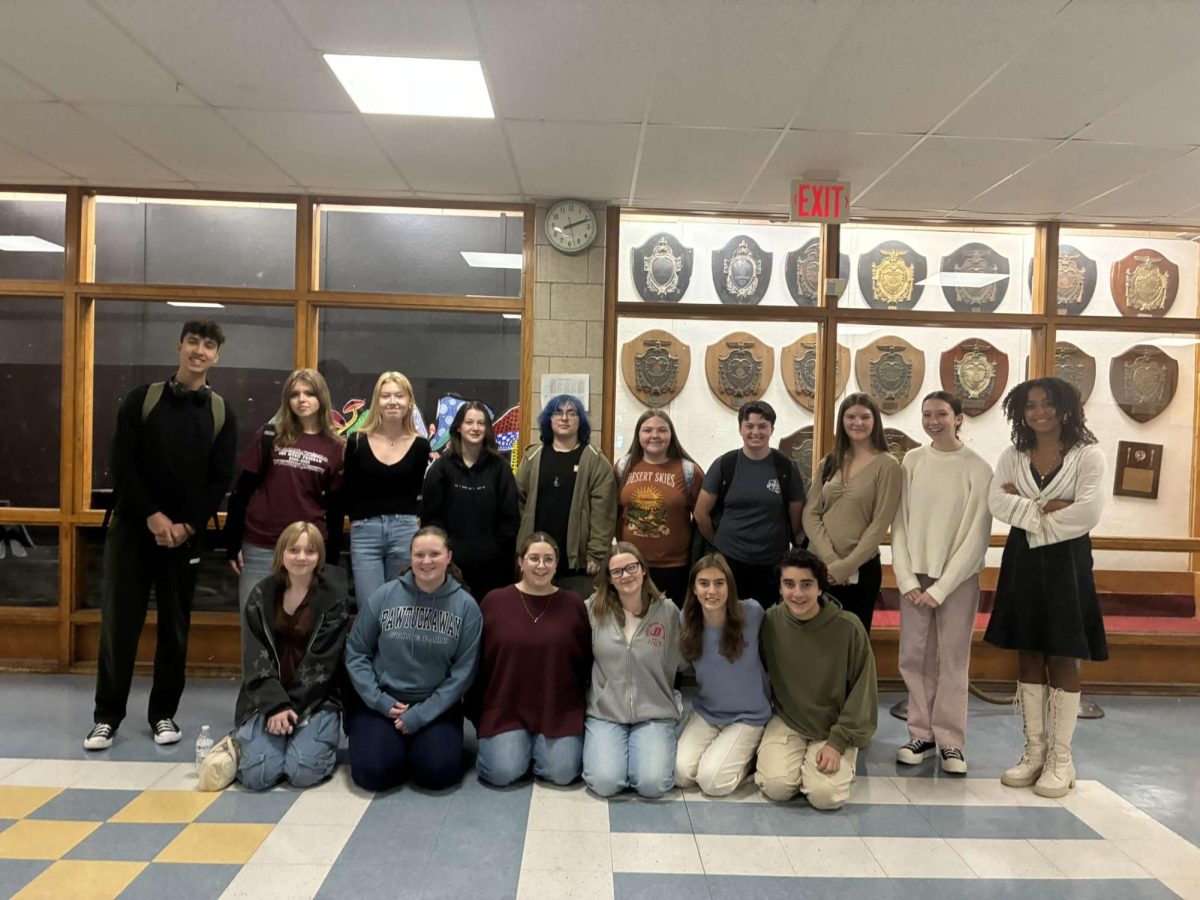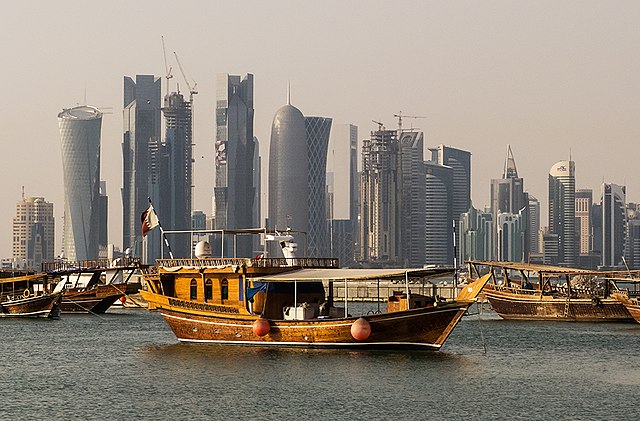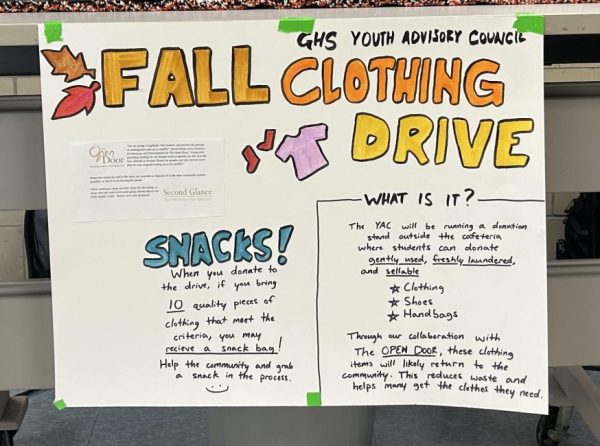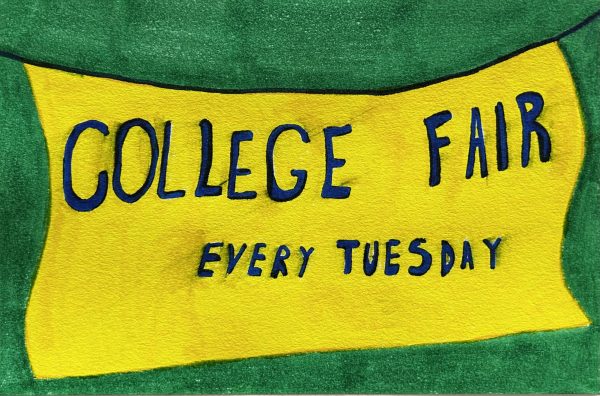The 2022 World Cup in Qatar—a ballad of human rights abuses
StellarD, CC BY-SA 4.0 via Wikimedia Commons
Dhow boats in front of the West Bay skyline as seen from the Corniche, in Doha, Qatar.
This November, one of the most watched and celebrated worldwide events will be hitting the field yet again. And the world will, for a brief moment anyway, put all of its divisions aside for some good old games of soccer. People will come together, players will make history, and celebrations will cover the globe as awe-inspiring plays take place.
But there is one issue: this year’s host country is Qatar.
Giving this year’s soccer championship to Qatar, a small Arabic-speaking Gulf nation comprising a peninsula off of Saudi Arabia, doesn’t seem like such a terrible idea at first glance. FIFA has never really had geographic diversity in its host countries, exclusively taking place in the Americas and Europe for all of its previous World Cups (aside from South Korea and Japan co-hosting in 2002, and South Africa in 2010), and Qatar certainly has a government stable enough that violence isn’t an issue, let alone enough money to pull off the World Cup (its GDP per capita is twice that of the U.S).
So what’s the problem? Qatar’s enormous wealth, surface-level stability, and plucky energy it brought to the FIFA nominations hide its true nature—it is one of the world’s worst human rights abusers.
Qatar, for most of its history, has been a backwater outpost, forgotten by most of the successive empires that have ruled it, from the Persians to the Ottomans to the British. Most of its economy was based on pearling and whatever fish could be caught, and even then it was overshadowed by the United Arab Emirates in both those fields. Qatar, pre-oil, had one of the world’s highest rates of poverty. That changed in 1940, when the Dukhan oil field was discovered off Qatar’s coast. World War II delayed development, but commenced afterward (albeit under British control) with little going to the Qatari people themselves. Qatar took its modern shape after two events—independence in 1971, and the nationalization of oil in 1977.
This oil caused the economy to go from nothing to everything in a matter of years. Today, Qatar is the richest per capita country in the world, and a major trading and transport power. But when your economy grows at such a ridiculous rate, you need people to build your country up, and with barely 100,000 people upon independence, Qatar needed people from other places.
Enter the migrant workers. From impoverished regions and countries across the world (though almost entirely from Asia), thousands answered Qatar’s call to the world of open borders and available work. Qatar’s population began to grow, especially during a surge from 2004 to 2014, during which time the population went from 700,000 to 2.4 million. It now sits at just shy of three million people.
These migrant workers (almost 70 percent of whom are from the Indian subcontinent) work in a large collection of jobs, but construction takes up the largest share of their work. It is in this industry where the World Cup problems lie.
The World Cup, as an international event, requires a huge number of stadiums, places for players to stay, public plazas, and transportation to be set up for the event. And, as previously stated, money isn’t an issue. But the working conditions are. Qatar’s general treatment of its migrant workers has not improved with the games—many are denied food and water, have their IDs taken away, or aren’t even allowed to leave the work they are doing unless the company that runs the construction allows them to (which rarely happens). All of these practices are known as the Kafala system, which is common in the Gulf, and is often called ‘modern slavery’ by humanitarian and human rights organizations.
And the Qatari government isn’t exactly doing anything to help the situation. Qatar, ahead of the game, has repeatedly promised to improve conditions, but has failed to live up to these promises every time. Foreigners are not allowed to know what is happening with migrant workers, as evident by a particularly bad international incident in 2015 when four BBC journalists, on government invitation, entered the country to report on World Cup development. When they reported on migrant worker conditions, they were arrested for two days, before being sent back to the U.K and banned from returning to Qatar. According to a report published by The Guardian, as of February 2021, an estimated 6,500 forced workers have died since Qatar began to plan for the tournament.
Migrant workers’ conditions aren’t the only human rights to be worried about during the World Cup. As an officially Islamic nation, in which Sharia law is the main source of legislation, LGBT rights among both fans and players have been a concern. Homosexuality is entirely illegal in Qatar, with imprisonment for up to seven years as the most common punishment. Qatar has said, leading up to the event, that LGBT rights will be respected to the extent to which FIFA respects them.
“If things can be changed, a lot of lives will be better,” Australian player Josh Cavallo, one of FIFA’s only openly gay players, said. “So I am excited to see what Qatar can do with this World Cup and if laws can be changed. I think it’s a fantastic opportunity.” But this is a deep-rooted cultural trait, and thus, very hard to dislodge. Consistent rumors that Qatar is planning to introduce ‘medical screenings’ to ‘detect’ and ban LGBT fans and players aren’t helping either.
And this isn’t even to mention the truckload of other issues: the degree to which alcohol is going to be allowed, oppressive women’s rights laws, the games being pushed back to November due to the unending heat of the summer (which messes up many domestic teams in the process), and still-high tensions with other Gulf states from Qatar’s diplomatic crisis in 2017. This is all in addition to the mountains—huge, enormous, never-ending mountains—of corruption, scandals, and bribery among the Qatari government and FIFA itself. It can’t be counted on a single pair of hands, or two pairs, or even 6,500 dead ones.
With all this in mind, now we sit back and watch as governments use the World Cup to finally unmask what Qatar and the Gulf really are—or maybe just sweep it under the rug and pretend it doesn’t exist yet again.

Finn is a senior at GHS and a second year staff writer for The Gillnetter. He enjoys reading, writing, reading about writing, and biking around Gloucester...










![The Volleyball team poses after their win. [Photo courtesy of GHS Volleyball]](https://thegillnetter.com/wp-content/uploads/2025/10/IMG_6936.jpg)



![The GHS/MERHS senior cross country runners pose together on Senior Night. [Photo courtesy of Manchester-Essex Athletics]](https://thegillnetter.com/wp-content/uploads/2025/10/Screenshot-2025-10-10-at-11.18.29-AM.png)






















![The Volleyball team poses after their win. [Photo courtesy of GHS Volleyball]](https://thegillnetter.com/wp-content/uploads/2025/10/IMG_6936-600x476.jpg)
